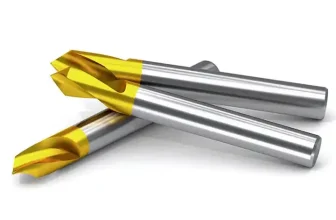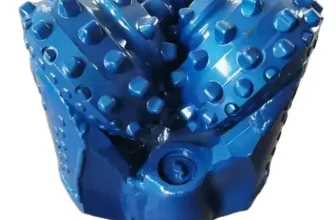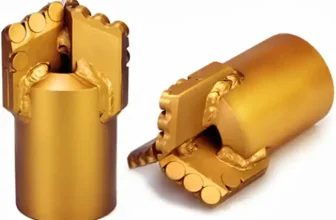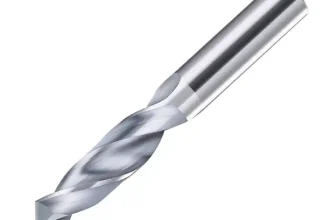Reduced Shank Drill Bits, often considered a versatile and essential
tool, play a crucial role in a wide array of drilling tasks. These
unique tools are ingeniously designed to perform well in challenging
drilling scenarios, where regular drill bits may not suffice. They
distinguish themselves from standard drill bits through their specific
shank design, hence the name, ‘Reduced Shank.’ Instead of having a
shank—the part of the drill bit that fits into the drill—that is the
same size as the cutting edge, a reduced shank drill bit has a shank
that is smaller in diameter. This makes it possible to use larger bit
sizes in a drill with a smaller chuck, neatly solving a common problem
witnessed in both industrial and home improvement scenarios. In the
following sections, we’ll dive deeper into the world of Reduced Shank
Drill Bits, exploring their design, advantages, varied applications, and
guidelines to purchase.
Importance in Different
Industries
Reduced Shank Drill Bits are invaluable tools across various
industries. These handy implements are used in sectors ranging from
construction and woodworking to metalworking and DIY home improvement.
Automotive, aerospace, and manufacturing industries also use these bits
due to their precise drilling abilities. Their ability to drill holes of
different diameters using the same shank size makes them an important
addition to any toolbox. In the world of manufacturing and assembly,
these drill bits reduce the need for multiple tools, thus streamlining
the production process. Thus, the importance of Reduced Shank Drill Bits
extends to several sectors, making them an indispensable part of the
industrial tools sector.
Understanding
the Basics of Reduced Shank Drill Bits
What is a Drill Bit?
A drill bit is a cutting tool specifically designed to create holes
of a set diameter in a variety of material types such as wood, metal,
plastic or ceramics. Functioning as the main component of a drilling
machine, it rotates to provide the necessary motion to remove material
and create a hole. Drill bits come in numerous sizes and shapes and are
selected based on the specific task at hand. They can be found in almost
every tool box and workshop as they are essential tools for both
professional and DIY tasks.
Types of Drill Bits
There is a plethora of drill bits available in the market, each with
a specific purpose and utility.
Twist Drill Bits are the most common type, perfect for drilling a
vast variety of materials such as metal, plastic, and wood. These bits
are cylindrical with two cutting edges on the tip.
Masonry Drill Bits are sturdily built to drill into stone, brick,
concrete or any other masonry elements. They have a unique, hardened tip
that can withstand intense pressure.
Spade Drill Bits, also known as paddle bits, are perfect for making
large holes in wood. Shaped like a small shovel, they carve out a wide
diameter hole with relative ease.
Forstner Drill Bits are used for precise drilling – great for
cabinetry or where the hole’s quality is crucial. They create clean,
smooth edged, and flat-bottomed holes.
Auger Drill Bits, identified by a screw tip and vast helix along the
shaft, are an excellent choice for drilling deep, long holes mainly in
wood.
Countersink Drill Bits are vital for creating a conical recess on the
hole to allow the screw to rest flush with the surface of the
material.
Tile Drill Bits, as the name suggests, are specially made to drill
holes in tiles without cracking them.
These are just a few examples, but there are many more types of drill
bits, such as step drill bits, hole saw drill bits, and plug cutter
drill bits, each designed to perform specific tasks. The Reduced Shank
Drill Bit is one such variation, known for its unique structure and
utility, which we’ll cover in the next section.
Definition
and Function of Reduced Shank Drill Bits
Reduced shank drill bits, also known as silver and deming drill bits,
are specifically designed with a shank that is smaller than the diameter
of the bit itself. The reduced shank allows the drill bit to fit into
chucks that are smaller than the bit size, making them compatible with a
broader range of equipment.
These drill bits serve a distinct function in the world of drilling
tools. They are used to create larger holes that regular drill bits
cannot manage due to their limited size. The shank is reduced to a
standard diameter, typically 1/2″, regardless of the size of the bit
itself. This allows them to be used in a variety of drill chucks.
Primarily, reduced shank drill bits are employed when there is a need
to drill large holes on materials where a standard straight shank bit
wouldn’t fit the chuck. This benefits users in numerous ways, expanding
the range of projects a single drill can handle while maintaining
precision and efficiency in the drilling operation.
Advantages of Reduced
Shank Drill Bits
Versatility in Hole Drilling
Reduced shank drill bits offer unmatched versatility when it comes to
drilling holes. Their inherent design allows them to be used on large
drills as well as on smaller drills that have a limited chuck capacity.
This means, irrespective of the type of machine, you can use the same
drill bit to create a variety of hole sizes. Furthermore, reduced shank
drill bits are capable of drilling through a plethora of materials, be
it wood, metal or plastic. The shank’s diameter remains consistent while
the drill bit head’s size can vary, thereby providing greater
flexibility in choosing bit sizes according to the job requirements.
This wide range of adaptability makes reduced shank drill bits an
indispensable tool for many, as they cater to diverse drilling needs
under different working conditions.
Use in Various Machine Tools
Reduced Shank Drill Bits are designed for use in a wide range of
machine tools, making them highly adaptable and versatile. One distinct
advantage is their ability to fit into standard chucks which are smaller
than the diameter of the bit itself. For instance, a 1/2″ reduced shank
drill bit is able to fit in a 3/8″ chuck, providing a wider range of
usability. This versatility ensures that they are not only suitable for
a variety of drills and drill presses, but can also be used with lathes
and milling machines, which broadens their application further.
Moreover, you are not limited to specific drill models with these
types of bits as they allow for a perfect grip in almost any drill,
regardless of make or model. The compatibility with various power tools
makes reduced shank drill bits an economically wise choice, eliminating
the need for purchasing separate drill bits for each tool. This makes
them an ideal choice for jobs involving multiple tools, and environments
where a variety of hardware tools are used, from professional workshops
to home garages.
Ultimately, the broad compatibility and adaptability of reduced shank
drill bits with various machine tools offers users significant benefits,
contributing to their efficiency, cost-effectiveness and overall
productivity in their drilling projects.
Durability and Strength
Reduced shank drill bits offer exceptional durability and strength, a
feature that is vital in maintaining an efficient operation, whether
it’s for an industrial, workshop, or home use. They are typically made
from strong materials, most commonly high-speed steel (HSS), which is
renowned for its hardness and resistance to wear. This material can
undergo high torques and resist the heat produced by the drilling
process, therefore extending the lifespan of the drill bit.
Moreover, reduced shank drill bits can tackle a variety of tough
materials, from metals, woods to plastics, without losing their shape or
sharpness. This strength in performance speaks to their rugged
construction and their ability to handle heavy-duty tasks with minimum
wear and tear. By choosing reduced shank drill bits, users are making a
long-term investment in a tool that is created to withstand demanding
conditions and deliver superior results.
Applications of
Reduced Shank Drill Bits
Industrial Applications
Reduced shank drill bits find extensive usage in a variety of
industries. They’re commonly used to deliver precision drilling in the
manufacturing sector. They help to create exacting and uniform holes in
the production of parts, systems, and frameworks in fields such as
automotive and aerospace.
In the construction industry, reduced shank drills play a crucial
role in building residential, commercial, and public infrastructure.
They are used to drill holes into wood or metals for assembly, securing,
or fixing materials together, making construction workflows more
efficient.
The oil and gas sector also relies heavily on these drill bits.
During exploration and drilling, they are used to penetrate the hard
strata of the earth, helping to gather precise geological data, and
assisting in the accurate placement of drills.
Other industries like the electronics and telecommunications sector
also benefit from the precision and adaptability of reduced shank drill
bits. In these and many other industries, this tool is revered for its
dependability, usefulness, and significantly, its versatility across
different materials from glass and ceramics to harder components like
metal.
Home Improvement Projects
Reduced shank drill bits are immensely beneficial for home
improvement projects. Not only can they be used in an extensive array of
household tasks, they are also capable of drilling diverse types of
material.
Whether you are looking to hang picture frames, drill holes for
installing shelves or undertake larger renovation projects, reduced
shank drill bits can turn a daunting task into an achievable one. They
can be used to drill holes in plastered walls, wood, metal and even
harder materials such as ceramic or concrete when carrying out bathroom
or kitchen improvements.
Additionally, reduced shank drill bits can fit into a standard
1/2-inch chuck of a portable drill, making it convenient for homeowners
who might not have access to industrial-sized drills. The versatility
and ease of use of reduced shank drill bits make them an indispensable
tool in home improvements, effectively bridging the gap between
residential needs and professional-grade power tools.
Professional Workshop Uses
Professional workshops often have a wide array of tools and machines,
each designed to perform specific tasks. Adding a set of reduced shank
drill bits to this collection can open up a range of new possibilities.
One of the key uses is in enlarging previously drilled holes. With their
ability to match up with various drill sizes, these bits can easily
widen the holes without causing any damage.
In metalworking and woodworking workshops, reduced shank drill bits
are highly prized for their versatility. They easily fit into standard
drill chucks, eliminating the need for multiple drill machines for
different bit sizes. This not only saves cost, but also space.
Reduced shank drill bits are also ideal for heavy-duty applications,
such as drilling into tough materials like stainless steel or hardwood.
Their high durability ensures that they can withstand pressure, reducing
the risk of breaking or wear. In intricate projects that require
precision drilling, these bits provide the necessary accuracy.
Finally, reduced shank drill bits are perfect companions for CNC
machines. The uniformity in the shank size allows for quick bit changes,
enabling efficient machining operations. This is especially beneficial
in production environments where speed and efficiency are of utmost
importance.
Buying Guide for
Reduced Shank Drill Bits
Factors to Consider when
Purchasing
When purchasing reduced shank drill bits, several key factors come
into play to ensure you get the best value and performance for your
money. Here are a few elements that need consideration before making a
final decision:
-
Material: The material of the drill bit is crucial in determining
its durability and performance. High-speed steel (HSS) is commonly used
due to its heat resistance and hardness, while cobalt steel alloys are
preferred for their superior heat and wear resistance, particularly in
heavy-duty drilling jobs. -
Size and Shank Diameter: Drill bits come in different sizes,
suitable for various applications. The size of the reduced shank drill
bit you choose should correspond to the diameter of the hole you want to
create. Similarly, the shank diameter needs to match the chuck size of
your drilling machine. -
Type of Drill: The kind of drill you intend to use also matters
when selecting the right type of reduced shank drill bit. The shank of
the drill bit should fit into your drill’s chuck comfortably, whether
it’s a hand drill or a drill press. -
Price: While it’s crucial not to sacrifice crucial elements like
durability and strength, it’s also important to consider the price of
the drill bit. Additionally, buying sets of reduced shank drill bits
could be economical in the long run, especially if you carry out various
drilling tasks. -
Brand Reputation: The drill bit market is saturated with brands,
some of which might not offer the quality they promise. Always opt for
reputable brands that have earned positive reviews and ratings from
users. -
Coating: Some reduced shank drill bits come with special coatings
like black oxide, titanium nitride, or carbide tips, which offer extra
durability, reduce friction, and increase the life of the drill
bits.
By keeping these factors in mind, you can ensure that you acquire a
reduced shank drill bit that will serve your needs effectively and last
for a considerable period.
Top Recommended Brands
Selecting the right brand can greatly influence the overall
performance and durability of your reduced shank drill bits. While there
are countless manufacturers on the market, a few have proven to stand
out because of their quality, reliability, and high customer
satisfaction.
One such brand is Dewalt, a worldwide known manufacturer of power
tools and accessories. Famous for its superior craftsmanship and
durability, Dewalt offers an expansive range of reduced shank drill bits
suitable for varied applications.
Bosch is another reputable brand that should be on your radar. They
are highly regarded for their innovative designs and high performance
products. Bosch produces reduced shank drill bits that are robust,
highly durable, and steadfastly accurate.
Hilti is another excellent choice when it comes to reliable reduced
shank drill bits. Known for their cutting-edge technology, Hilti drill
bits are a favorite choice in the construction and engineering
industry.
Irwin Tools, with their vast selection of different tools, their
reduced shank drill bits are of superb quality. They offer high-speed
steel construction, improving durability, and outlasting standard
bits.
Makita is also a noteworthy brand with a reputation for high-quality
tools. Their reduced shank drill bits are designed for tough jobs,
ensuring wide adaptability and durability.
Remember, the right brand not only enhances your drilling experience
but also prolongs the life of your tool. Always consider the nature of
your project and select the brand that best aligns with your needs. With
these top recommended brands, you’re assured of superior quality,
excellent performance, and value for your investment.
Caring for
and Maintaining Reduced Shank Drill Bits
Proper care and maintenance of your reduced shank drill bits
significantly extend their lifespan, ensuring that they remain useful
for several projects. Here are some tips to assist you in maintaining
these tools at their peak performance.
-
Regular Cleaning: After each use, wipe the drill bits down using
a clean, dry cloth to remove any dirt or metal filings. Any leftover
residue can interfere with the performance of the drill bits and may
lead to premature wear. -
Proper Storage: Drill bits should be stored in a dry, secure
location, ideally inside a tool box. This can prevent any accidental
damage and also protect them from the elements. Rust can easily develop
on drill bits if left in humid conditions, leading to decreased
functionality. -
Lubrication: Prior to drilling, apply a small amount of cutting
oil to the drill bit. This helps to decrease friction and heat produced
during drilling, which can dull your drill bits over time. -
Correct Usage: Always ensure that you’re using the correct size
of drill bit for the task at hand. Using a drill bit that’s either too
large or too small can damage both the bit and the material you’re
working on. -
Routine Inspection: Every once in a while, closely inspect your
drill bits for any indication of wear and tear, including chips or blunt
edges. If any bit is damaged, it’s best to replace it to avoid ruining
your workpiece or further damaging the bit. -
Regular Sharpening: Sharpen your drill bits regularly to maintain
their effectiveness. You may opt to use a drill bit sharpener or hire
professional services if you’re not confident in performing this
task.
By practicing these steps, you’d keep your reduced shank drill bits
operating efficiently for a considerably longer period. It’s a small
investment of time that pays off greatly both in terms of productivity
and tool longevity.
Conclusion
Recap of Key Points
Throughout this article, we have explored the crucial role of reduced
shank drill bits in several industries, and their importance cannot be
overstated. We have delved into the basics of what a drill bit is, the
different types there are, and the distinctive features of reduced shank
drill bits that set them apart.
We have also highlighted the main advantages of these drill bits,
emphasizing their versatility in drilling different hole sizes, their
use across a variety of machine tools, and their impressive durability
and strength. Various applications of these drill bits have been
discussed, from industrial uses to home improvement projects and
professional workshops.
The buying guide section offered important factors to consider when
buying these drill bits, including the top recommended brands and vital
tips for their care and maintenance. In essence, these tools are
invaluable for a wide array of tasks, offering excellent performance and
results.
Encourage
Discussion and Input from Readers
We highly encourage our readers to engage in productive discussions
around reduced shank drill bits. Your opinions, suggestions, and
insights are economical pillars that can enlighten fellow readers,
hobbyists, professionals, and even manufacturers. If you have personally
used these types of bits and have first-hand experience, we would love
to hear about your experience – the good, the bad, and the learning
curve. Maybe you’ve found an offbeat use for reduced shank drill bits,
or you have a particular brand you swear by. We invite you to leave your
comments below, and contribute to our collective understanding of these
versatile tools. Let’s learn together and from each other!







